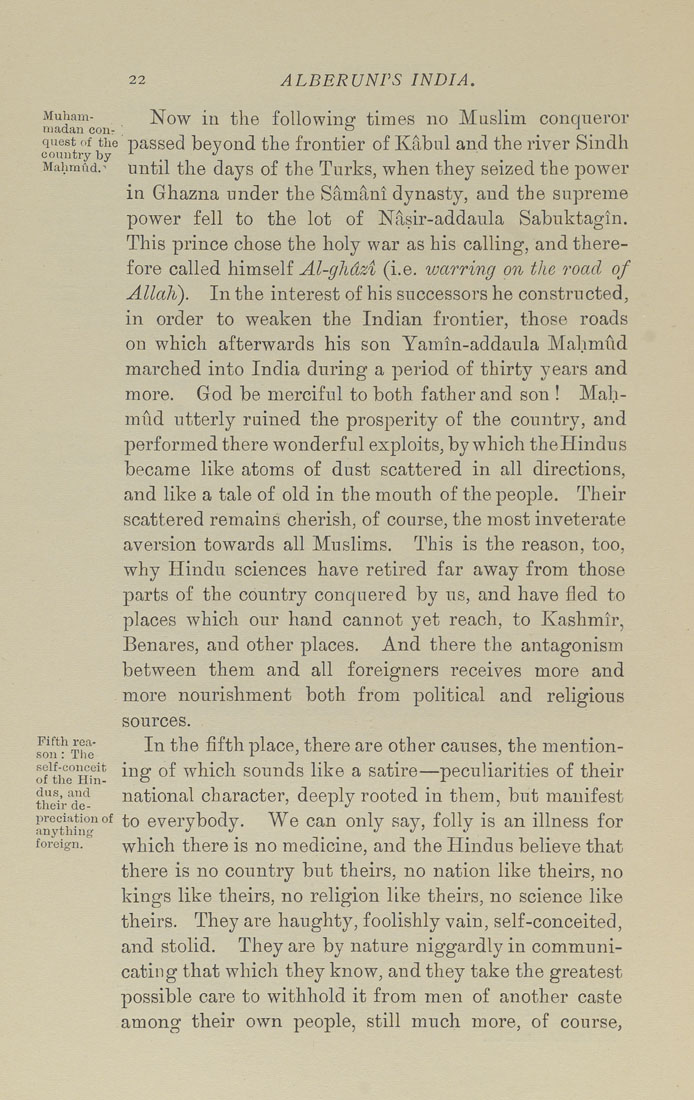Bīrūnī, Muḥammad ibn Aḥmad, Alberuni's India (v. 1)
(London : Kegan Paul, Trench, Trübner & Co., 1910.)
|
||
|
|
|
|
| Page 22 |

ALBERUNPS INDIA. Muham¬ madan con¬ quest of tlie country by Mahmi'id."- Fifth rea¬ son : TI)o self-conceit of the Hin¬ dus, and their de¬ preciation of anything foreisrn. Now in the following times no Muslim conqueror passed beyond the frontier of Kabul and the river Sindh until the days of the Turks, when they seized the power in Ghazna under the Samani dynasty, and the supreme power fell to the lot of Nasir-addaula Sabuktagin. This prince chose the holy war as his calling, and there¬ fore called himself ^/-^A(^2'i (i.e. warring on tlie road of Allah). In the interest of his successors he constructed, in order to weaken the Indian frontier, those roads on which afterwards his son Yamin-addaula Mahmud marched into India during a period of thirty years and more. God be merciful to both father and son ! Mah¬ mud utterly ruined the prosperity of the country, and performed there wonderful exploits, by which the Hindus became like atoms of dust scattered in all directions, and like a tale of old in the mouth of the people. Their scattered remains cherish, of course, the most inveterate aversion towards all Muslims. This is the reason, too, why Hindu sciences have retired far away from those parts of the country conquered by us, and have fled to places which our hand cannot yet reach, to Kashmir, Benares, and other places. And there the antagonism between them and all foreigners receives more and more nourishment both from political and religious sources. In the fifth place, there are other causes, the mention¬ ing of which sounds like a satire—peculiarities of their national character, deeply rooted in them, but manifest to everybody. We can only say, folly is an illness for which there is no medicine, and the Hindus believe that there is no country but theirs, no nation like theirs, no kings like theirs, no religion like theirs, no science like theirs. They are haughty, foolishly vain, self-conceited, and stolid. They are by nature niggardly in communi¬ cating that which they know, and they take the greatest possible care to withhold it from men of another caste among their own people, still much more, of course. |
| Page 22 |







